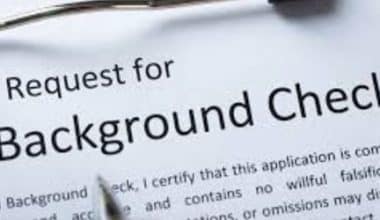Financial Education is the art of investing and managing money and the ability to make sound financial decisions. It is actually the key to the growth of the economy.
According to research, most African countries do not adequately understand basic financial concepts, and hence, this ignorance has wrecked their economy of productivity and growth. In some developing countries, the rural residents know little or nothing about the organized financial system and its services, and this has led them into financial fraudulence, as a result, degrading the nation’s economy. But, with exposure to adequate financial education, they can have access to the necessary financial services; earn more, build assets, cushion themselves against external shocks and adopt digital transactions to make life easier for them.
Financial Literacy and Financial Education.
Financial Literacy is the ability to understand how money works, and to understand money and how it works, it is important to know common financial literacy principles such as financial goals, budgeting, investments, contracts, and employment models. Also, it provides the knowledge and skill we need to manage money effectively – budgeting, saving, borrowing, and investing.
Furthermore, Financial Education makes us more enlightened and equipped to reach our financial goals and achieve financial stability. Financial education and literacy are similar but quite different from financial inclusion. Financial inclusion deals more with the services you enjoy in the financial systems.
Importance of Financial Education.
Let’s discuss some of the vital essences of this subject matter that one can enjoy.
#1. Financial Education helps you plan for the future:
To plan for your future, you need to understand what different savings options at your reach, and more so, how they may impact your goals. For example, if you are planning on retiring someday, financial education can help you understand how much money you’ll need. It can help you understand how to save based on your current income, inflation, and retirement duration in view. Understanding your finances can also help you plan for other goals.
#2. Financial Education helps to end debt accumulation:
This implies that you learn to make a budget and to understand how your income relates to your expenses to avoid accumulating debt in the future. Consequently, it helps you understand how your finances work, and what makes them healthy is part of learning to live without debt.
#3. Financial Education helps in a smart decision about money:
Time and money are the two most important resources of your life. If you can improve your skills with these two resources, certainly you can lead a rich life. So financial education helps you make better decisions with your money. Hence, the financial choices you make today for yourself or your organization affect your future wealth.
#4. Financial Education helps you in making informed decisions on spending:
The discourse of spending is important if finance is of concern. Those who save money realize the fact that wise spending leads to saving and hence investing. A household that spends unwisely can end up complaining about insufficient funds attained. Governments and organizations which spend unwisely will always cry for the budget deficit.
#5. Financial Education enhances Economic growth in a country:
For emerging economies, financially educated consumers can help ensure that the financial sector makes an effective contribution to real economic growth and poverty reduction. financial education is also crucial for more developed economies, to help ensure consumers save enough to provide an adequate income in retirement while avoiding high levels of debt that might result in bankruptcy and foreclosures.
#6. Financial Education prepares our youths for adulthood:
Owing notably to technological advances, younger generations are likely to involve more financially in their adulthood than the older generations and to use financial services to perform a wide array of activities throughout their life. They will also probably have to bear more financial risks in adulthood than their parents. In particular, they are likely to be responsible for the planning of their own retirement savings and investments and the coverage of their healthcare needs. They may also deal with increasingly sophisticated and innovative financial products and services.
Best Financial Education Books.
Reading books on financial education is, without a doubt, a greater affordable way of learning more about finance, gaining insights and knowledge to enjoy your stay in the financial systems. By reading a book, you consume a large amount of research in a relatively short amount of time and it is one of the best ways to improve intellectually and otherwise. Here are some of the best books on financial education:
#1. THE ALCHEMY OF FINANCE by George Soros:
Trustfully, you must have heard about George and his remarkable career and philanthropy. His charitable foundations give half a billion dollars annually in as many as 50 countries for projects in different areas of society. Today, he is the Chairman of Soros Fund Management LLC. In the book “The Alchemy of Finance”, he reveals his theory which concludes that the markets and the financial systems are rigged to protect the interests of the powerful. Although we can find a great deal of criticism in this book, we recommend it because of its originality and because the author wrote it based on his experiences. He is honest and talks about the way his opinions have changed over the years, and more so about his forecasting errors. By doing that, he shows that he is preaching what he says; that mistakes are keys to success.
#2. RICH DAD, POOR DAD (2009) by Robert T. Kiyosaki:
Kiyosaki is best known for his book “Rich Dad, Poor Dad,” the #1 New York Times bestseller. He has now had at least a dozen books published. Robert Kiyosaki has challenged and changed the way tens of millions of people around the world think about money. With perspectives that often contradict conventional wisdom, Robert has earned a reputation for straight talk, irreverence, and courage. He is regarded worldwide as a passionate advocate for financial education. “Rich Dad Poor Dad” is a starting point for anyone looking to gain control of their financial future.”
#3. THE INTELLIGENT INVESTOR (1949) by Benjamin Graham:
Benjamin Graham (born Benjamin Gross Baum; May 8, 1894 – September 21, 1976) was a British-born American economist and professional investor. Graham is the father of value investing, an investment approach he began teaching at Columbia Business School in 1928. The Classic bestseller by Benjamin Graham perhaps the greatest investment advisor of the 20th century, the intelligent Investor has taught and inspired hundreds of thousands of people worldwide. In the book “The Intelligent Investor” he reveals that an intelligent investor must analyze the long-term evolution and management principles of a company before investing. “By far the best book on investing ever written (Warren Buffett)
#4. THE RICHEST MAN IN BABYLON (2004) by George S. Clason:
George Samuel Clason was born in Louisiana, Missouri, on November 7, 1874. He attended the University of Nebraska and served in the United States Army during the Spanish-American War. Beginning a long career in publishing, he founded the Clason Map Company of Denver, Colorado, and afterward published the first road atlas of the United States and Canada. In 1926, he issued the first of a famous series of pamphlets on thrift, as well as financial success, using parables set in ancient Babylon to make each of his points.
Without a doubt, this book became a manual for many investors in the 2oth Century. Therein are organized parables, explicitly teaching the lessons of money. More so, it’s for graduates and every biased individual in the world of finance. It’s a gift they must appreciate, even to experienced investors, notwithstanding.
#5. THE TOTAL MONEY MAKEOVER (2007) by Dave Ramsey:
Ramsey was born and raised in Antioch, Tennessee. He graduated from the College of Business Administration at the University of Tennessee Knoxville, where he earned a Bachelor of Science degree in Finance and Real Estate. As a real estate investor, doing business as Ramsey Investments, Inc., he built a rental real estate portfolio worth more than $4 million in 1986. He has written five New York Times bestsellers. His book “The total money makeover” will guide you on having a strong foundation for saving money so that your next life emergency won’t derail your finances so you could retire comfortably. It also shows you how to stop accepting debts, eliminate it forever in small increments, and build the financial future you deserve.
#6. ENRICH by Todd Miller:
Too many people work themselves up from their jobs, feeling run down or even depressed after work each day. However, leaving financial stability is a tough sell, making it difficult to let go and pursue something else. Todd Miller’s six-step “ENRICH” method helps the average worker get over that hill. Todd retired in his early 50s by being able to get his finances in check with this approach. His tips are also sensible advice for persons or families looking to scrape together startup funds.
So, go ahead; invest in reading. Everyone can benefit from the financial lessons of these money masters. In due time, you can enjoy financial bliss yourself.
Financial Education Courses.
Financial education is highly important, and not just for investors. It has become essential for the average family in trying to decide how to balance its budget, buy a home, fund the children’s education, and ensure secured income when the parents retire.
So, here are 5 courses that would help and guide you to manage your finance smartly:
#1. Personal and family financial planning:
This course is hosted on Coursera. It was created by the University of Florida. The course is for everyone, notwithstanding age or career level. Furthermore, it expands on the topics of investing and risk management, among others. It was designed to encourage participants to evaluate and change their money habits.
#2. Finance for Everyone; Smart tools for Decision Making:
It is hosted on edX and taught by the University of Michigan. This course will cover smart decisions when looking at your money situations, both as a professional and as an individual so as to attain financial stability.
#3. Financial Literacy:
This course is hosted by Alison. It will help you understand how money works in your personal, as well as your professional life. Additionally, it will teach you to set up your accounts, budgets, and work with taxes and government benefits.
#4. Financial Planning for Young Adults:
This course is hosted in Coursera, and it was created by the University of Illinois. It provides an introduction to financial planning concepts. Tailored to young adults, the topics include financial goal setting, budgeting, saving and investing, borrowing, and credit.
#5. Accounting and Financial Management:
This course is offered in edX. Whether you’re making a career of financial Literacy and wanting self-improvement, his course will give you the knowledge and expertise to improve your financial future. This course will put you on a realistic and effective path toward financial stability.
Financial Education PDFs.
#1. Unfair Advantage: The Power of Financial Education.
This book gives in-depth knowledge on financial education, and why it’s an unfair advantage especially in a declining economy. You can get it free on pdfdrive.net
#2. Financial Planning & Analysis and Performance Management.
This is an essential reference manual for Financial Planning & Analysis and Investor Relations teams. It is very helpful, even with its useful tools for setting strategy and its practical guides to implementing process improvements and to innovating. Download the book from pdfdrive.net
#3. Secrets of the Millionaire Mind: Mastering the Inner Game of Wealth.
This book provides the missing link between the “desire for success and achievement for success.” Furthermore, it unravels reasons some people are destined to be rich and others destined for a life of struggle. Moreso. it reveals the root causes of success, mediocrity, or financial failure, and how the reader can change his/her financial future for the better. Get the book free from pdfdrive.net
#4. The Entrepreneur Mind: 100 Essential Beliefs, Characteristics, and Habits of Elite Entrepreneurs.
“The Entrepreneur Mind is a very important contribution to the entrepreneurship literature. One of
the critical takeaways deals with relationships, relationships, relationships! To be truly successful as
an entrepreneur you must always exceed expectations in all of your diverse relationships!”
—James I. Herbert
Use the link pdfdrive.net to download the book free.
It should however be noted that we do not have any affiliate partnership with the site to publicize any of the books on their platform and do not earn from making recommendations of this kind. They bear the full consequence, not us, in case they do not have authorization from publishers to make the book free for downloads.
FAQ
Why is financial education important?
Earning money is only not enough, you need to know the ways to utilize the money earned. Due to the lack of financial education, people have been unable to utilize even basic financial services. Lack of financial education is a heavy burden for our country as the investments are not being made into the proper sectors.
Who needs financial education?
The need for financial literacy is evidenced by the poor financial situation of individuals: drowning in debt without a budget plan and making misguided decisions about their money. Most of these poor financial behaviors stem from financial illiteracy (basic lack of understanding of financial competencies).
What is the scope of financial education?
As one can imagine, the scope of financial literacy is vast. It encompasses budgetary education (personal or family budget) and learning about banking tools (everyday banking, savings, insurance), as well as understanding economic concepts (how the economy operates and is financed) and public policies.
Related Airticles
- Financial Literacy Tests to Track your Progress Efficiently(+ quick guide and tips)
- FINANCIAL LITERACY FOR KIDS: BASIC LESSONS AND ACTIVITIES FOR ALL GRADES
- Top 12 steps to financial freedom in 2023(+financial freedom books)
- FINANCIAL RESOURCES: 7 Best Sources to look out for in 2023 (+ Detailed Guide)






